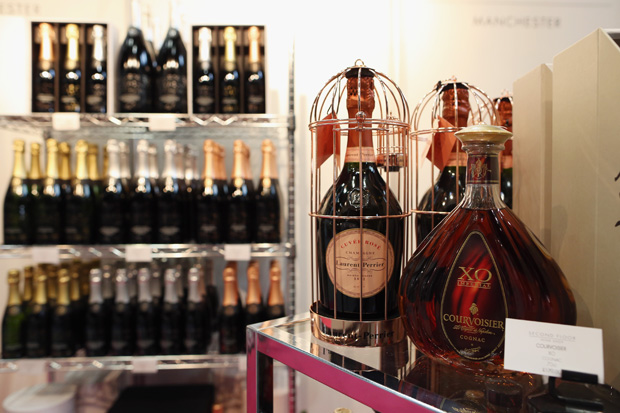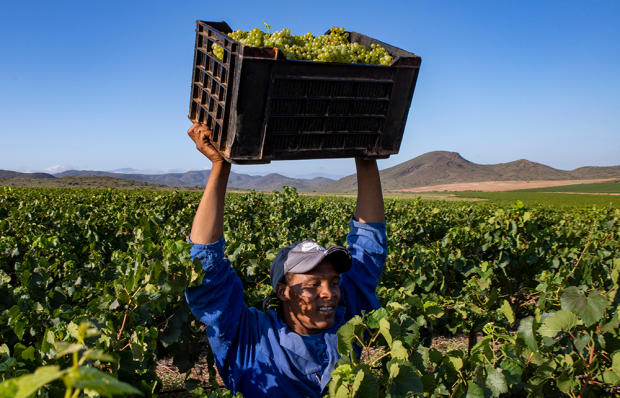It will seem an ungrateful comment after the lunch which I am about to describe, but Manchester has some way to go. In the Midland Hotel, the principal Tory conference hotel and a grand edifice redolent of civic self-confidence from an earlier era, the northern powerhouse could sometimes be mistaken for a 40-watt light bulb. The business centre had been closed for the duration of the conference. The management person who told me this had enough nous to wilt under my incredulous stare. But it remained closed.
At a bar, two girls struggled to do half of one girl’s work. Whenever anyone tried to pay by plastic, inaccuracy and chaos reigned. The girls were not to blame. Increasingly panic-stricken, they looked sweet and were obviously under-educated and under-trained. But they were hopeless. It was horribly reminiscent of Blackpool.
The lunch. It had two aspects. The first was a superb wine list which would have graced any restaurant in the world. The second, the food. It was pretentious: nouvelle cuisine in portions which would not have satisfied one of L.S. Lowry’s stick men. That said, there was nothing wrong with the taste. Indeed, the ceviche of sea bream would have justified a Michelin rosette. But the main course arrived an hour and a half after we sat down.
We hardly noticed and did not complain, because of the wine. Our host, a prosperous Mancunian who has been a one-man northern powerhouse for some decades, was in a mood to gloat. A devotee of George Osborne, he wanted to celebrate the end of an era of civic decline and hideous council architecture: the bitter harvest of Labour dominance. On his way in, he enjoyed bantering with the anarchists, telling one dungareed girl that if she changed into a skirt and washed her hair, she would scrub up into something better than cat food on hind legs. ‘Please move along, sir, we’ve enough trouble with this lot as it is,’ said a senior-looking bobby, hardly able to contain his laughter.
We started with a Criots-Bâtard-Montrachet ’99. It was delicious, but not remotely ready. We were drinking about 30 per cent of the wine. It needed at least another five years. That was not true of the first red wine, a 1990 La Lagune. This was claret at its almost best. It had the subtlety and power of a wine from a serious château which has reached maturity after a happy childhood, combined with the intellectuality which only cabernet sauvignon can provide.
We moved on to a more powerful but less intellectual wine. Ornellaia, a super-Tuscan, is a successful attempt to produce a St-Emilion in Italy. But to those of us with an incurably Left-bank palate, it lacked the finesse of the La Lagune.
The host was delighted by the way the debate was going, for the next wine was a 1995 Cheval Blanc. Was this not as intellectual as any Pauillac? One could only agree. Barely ready, it was magnificent: the best wine we drank. We concluded with a Vieux Château Certan 1982, a classic Pomerol. As one would expect from such a great year, it was still fine. If you have some, there is no tearing hurry to drink it up but no reason to delay doing so.
Lunch was followed by an expedition, to visit what was left of Victorian Manchester, when the city’s powerhouse status was taken for granted. The John Rylands Library: the original university buildings, where one almost expected to see Tait and Tout, gowned and conferring, as they planned a history school to rival Oxford or Cambridge: the paintings of Pierre Adolphe Valette, who taught Lowry but was a very different artist. Mist, spires, canals — he was Manchester’s Monet. This was a great city and will be so again.
Got something to add? Join the discussion and comment below.
Get 10 issues for just $10
Subscribe to The Spectator Australia today for the next 10 magazine issues, plus full online access, for just $10.
You might disagree with half of it, but you’ll enjoy reading all of it. Try your first month for free, then just $2 a week for the remainder of your first year.















Comments
Don't miss out
Join the conversation with other Spectator Australia readers. Subscribe to leave a comment.
SUBSCRIBEAlready a subscriber? Log in